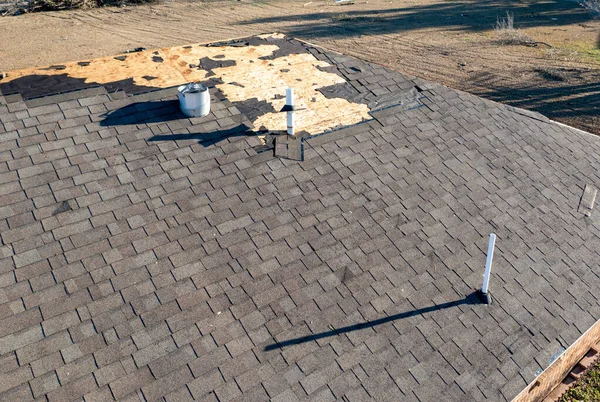How Extreme Weather Can Impact Your Roof And What To Do About It

Your roof is your home’s first line of defense against the elements. It shields you from rain, snow, wind, and harsh sunlight. However, when extreme weather strikes, your roof can take a beating, leading to potential damage and costly repairs. In this blog post, we’ll explore how extreme weather can impact your roof and provide you with some practical tips on what to do to protect it.
Rain-Induced Roof Troubles
Rain is a natural part of the weather cycle, but when it comes down in torrents, your roof can suffer. Heavy rain can lead to several problems:
Leaks
Persistent heavy rain can cause water to seep through cracks or damaged shingles on your roof, leading to leaks inside your home. Look for water stains on your ceilings and walls, and address any leaks promptly.
Sagging
Over time, excessive rainwater can cause your roof to sag, weakening its structure. Regular roof inspections can help identify signs of sagging and prevent further damage.
Mold and Mildew
Accumulated moisture from heavy rain can create a breeding ground for mold and mildew, harming your health. Ensure proper ventilation in your attic and promptly address any signs of mold growth.
Protecting Your Roof From High Winds
High winds are another common weather extremes that can wreak havoc on your roof:
Missing or Damaged Shingles
Strong winds can lift and tear shingles from your roof, leaving it vulnerable to further damage. Regularly inspect your roof for missing or damaged shingles and replace them promptly.
Loose Flashing
High winds can also loosen the flashing around roof penetrations, such as chimneys and vents. Ensure your flashing is secure to prevent water from seeping into your home.
Falling Debris
During a windstorm, debris like branches or entire trees can fall onto your roof, causing severe damage. Trim tree branches close to your roof and remove any potential hazards.
Shielding Your Roof Against Hail Damage
Hailstorms can be particularly destructive to roofs:
Dented Shingles
Hail can cause dents and divots in your roof shingles, compromising their integrity. If you experience a hailstorm, inspect your roof for damage and consider professional repairs if needed.
Roof Membrane Damage
For flat roofs, the membrane can be vulnerable to hail damage. Regularly check the condition of the membrane and replace it if necessary.
Snow and Ice Challenges: Protecting Your Roof From Snow Accumulation and Ice Dams
In regions with cold winters, snow and ice can pose significant challenges for roofs:
Snow Accumulation
Heavy snowfall can lead to excessive weight on your roof, potentially causing it to collapse. Remove snow buildup from your roof with a rake, or hire a professional.
Ice Dams
Ice dams can form along the edges of your roof, blocking proper drainage and leading to leaks. Proper insulation and ventilation can help prevent ice dam formation.
Key Steps to Protect Your Roof From Extreme Weather Damage
To protect your roof from extreme weather, consider the following steps:
Regular Inspections
Schedule annual roof inspections to identify and address any issues promptly.
Regular Maintenance
Keep your roof clean and debris-free, and make repairs when you notice damage.
Proper Ventilation and Insulation
Ensure your attic is well-ventilated and insulated to prevent moisture buildup and ice dam formation.
Professional Repairs
If your roof sustains significant damage from extreme weather, don’t hesitate to call a professional roofing contractor for repairs or replacement.